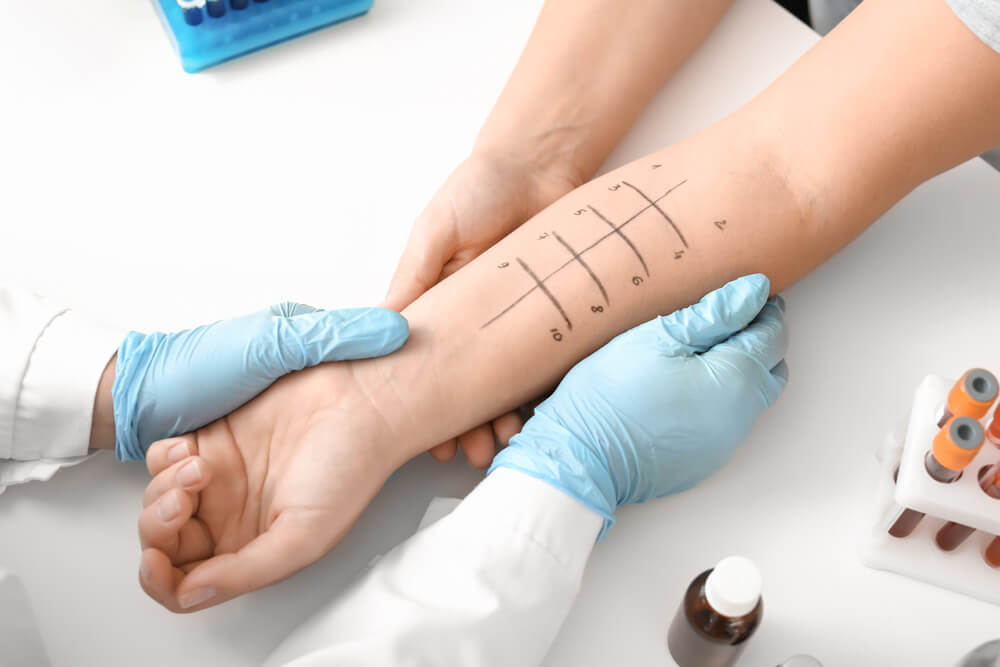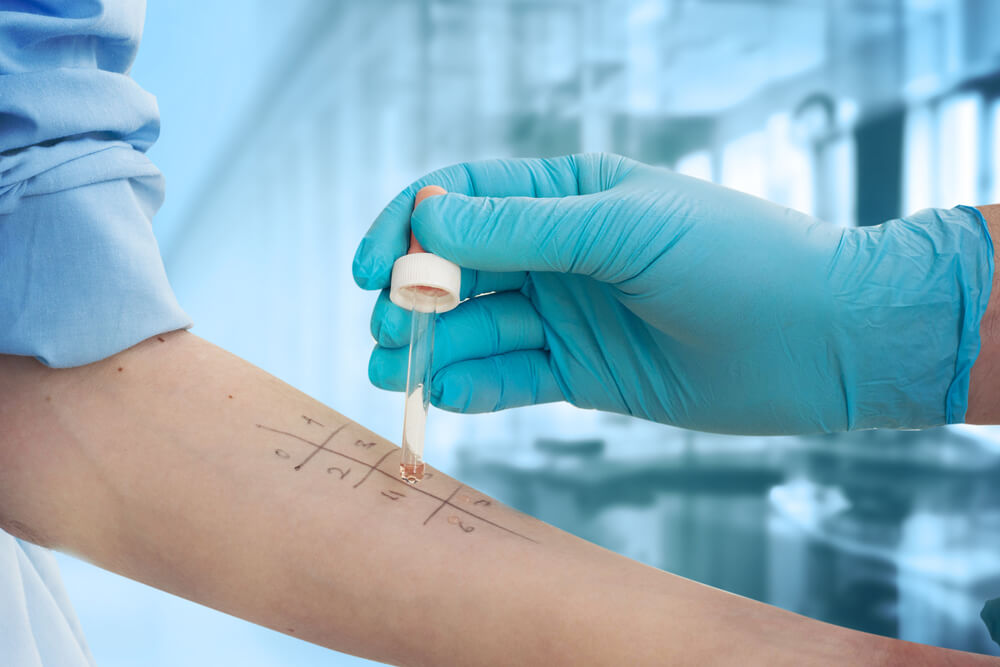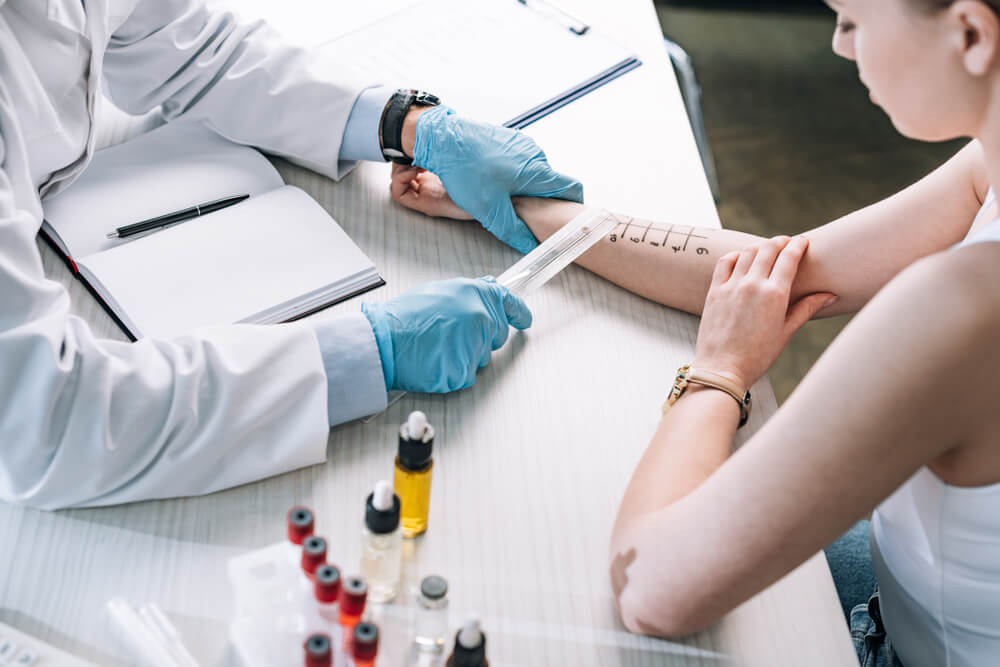Allergies are defined as occurrences in which a person’s body reacts to a substance in the environment, such as dust, pet hair, pollen, mold, etc. These substances are called allergens, and different types of allergens trigger a wide variety of allergies in people.
Allergy symptoms are actually a reaction of our immune system to external stimuli, and they most often include:
- Sneezing
- Coughing
- Itchy nose and eyes
- Cramps
- Rashes
- Hives
- Clogged respiratory system
- Vomiting
- Tingling sensations
- Eczema
- Issues with breathing
- Wheezing
- Congestion in the nose and throat
Treating an allergy can sometimes be tricky due to the lack of information about the allergens that trigger the patient, so allergy testing is one of the first recommendations doctors give when a patient starts displaying the symptoms mentioned above. If you want accurate and fast results, make sure you contact the Allergy and Immunology Center, as they have one of the most recognized and experienced teams in testing for allergens and treating allergy symptoms.
What Is Allergy Testing?

When it comes to the question of what allergy testing is, the name reveals the final expected outcome. Still, in this article, we will elaborate in more detail on the actual procedure, why it is performed, what types of tests there are and how to mitigate the results.
So, testing for allergens is a procedure where the chosen healthcare professionals perform tests that determine if your body displays a reaction when exposed to different allergens. If this occurs, the patient is allergic to the substance at hand and should take specific steps to deal with the symptoms.
People can be allergic to various substances, from mold, dust, pet hair, pollen, and plants, to foods, insect bites and stings, medicines, etc. The manifestation of these allergies is different for each individual. While one person might not experience any symptoms, others can struggle with severe consequences such as heavy breathing, hives, etc.
If you are wondering why allergen testing is done, here are a few reasons to answer your question:
- Symptoms of the allergy are very disruptive to your everyday life.
- You have asthma, and the test identifies allergy triggers that negatively influence your asthma symptoms.
- You experienced a severe reaction to a particular allergen called anaphylaxis, and it can be life-threatening if the direct cause is not determined immediately.
When deciding whether to have an allergen test or not, here is some additional information that might be useful:
- If you are experiencing allergy symptoms known as allergic rhinitis or hay fever, and the symptoms include headaches, itchy eyes, and nose, congestion of the nose, sneezing, coughing, short breath, sore throat, wheezing, difficulty breathing, etc., you should most probably visit your chosen doctor and schedule allergen testing.
- If two hours or less after eating, you start experiencing symptoms such as the face, lips, and tongue swelling, itching, wheezing, short breath, nausea, vomiting, pain in the abdomen, diarrhea, weak pulse, pale skin, dizziness, etc. you might have food allergies, and that is a diagnosis which demands allergy testing.
- If you notice that you have an allergic reaction on the skin after using latex, different fragrances, or metals, this might be identified as contact dermatitis. The symptoms can include hives, swelling, blisters, itchy skin, etc., so make sure you talk to your doctor to perform a patch test and determine what you are allergic to.
How Does the Test Work and What Types of Allergen Tests Are There?
Before the patient comes to allergy testing, the doctors will demand that they stop using any allergy medication up to seven days before the test. This is the preparatory phase of the testing, and it is essential to follow these recommendations because allergy medicines can interfere with the results. Only when the patient has asthma can medication be taken before the testing procedure.
As mentioned, the test’s purpose is to monitor the body’s reaction to allergens and to measure the triggers after exposing the patient to different substances. If you are allergic to the substance, your body will overreact and produce antibodies (immunoglobulin) which are proteins triggering the release of different chemicals causing the reaction. The majority of the symptoms occurring during the allergen test disappear after a few hours, and the test is done in a safe environment by experts in this field, so there is no need to worry.
When it comes to types of allergen tests, below you can find a list, so you can familiarize yourself with offered options and discuss them with your doctor:
- Skin prick test also called a scratch test, is used for food and airborne allergies, as well as allergies to penicillin. The doctor either uses a needle to take a sample of your skin from the back or the forearm, or they put a few drops of allergens on the skin and, using a device, scratches the area so the liquid can penetrate the skin. The most common reactions, if you are allergic to the used allergens, are a rash, redness, etc.
- The patch test is used to trace the cause of contact dermatitis. The chosen doctor puts a few drops of allergens on the arm and puts a bandage over it, or they apply a bandage with the allergens in it to the chosen area. After 48 to 96 hours, the patient returns to the doctor’s office, and after removal, the provider checks for any rash or some other symptoms.
- The intradermal skin test is done when the prick test is not conclusive or comes back negative. The doctor puts a tiny amount of allergens in the epidermis (the outer layer of the skin) to test for medication and airborne allergies, as well as insect bites and stings.
- Blood testing when it comes to allergies is done by adding allergens to the extracted blood sample and measuring the level of IgE antibodies produced. It is said that blood tests can have a high rate of false positives when it comes to results, so keep that in mind.
- Challenge tests are done when the patient is allergic to certain foods or drugs, so they swallow a tiny amount of the allergen, and the provider then monitors their reaction. This is strictly done under medical supervision and guidance so that potential anaphylactic reactions can be prevented.
Risks and Results

The most significant risk when it comes to allergy testing is an anaphylactic reaction, but this is very rare. However, medical providers always prepare epinephrine to mitigate any unexpected allergic reactions to used substances.
Allergen testing can have two types of results – positive and negative. If the result is negative, the patient is not allergic to the substance, while a positive result indicates an allergy that needs further treatment and monitoring. Sometimes the results are characterized as false positives, which can be easily discovered, and the test can be retaken.
Treatment
After your allergy testing results are positive, you have to talk to your chosen medical professional to determine a treatment plan. Most often, they will recommend one or more of the following steps:
- Minimizing exposure to the substances
- Taking allergy medication regularly
- Getting allergy shots
- Having an epinephrine injection at hand always
- Carrying a medical alert card or medical jewelry with information about your allergies
Schedule an Allergy Test
If you are suffering from symptoms that are starting to affect your life quality negatively, contact our center and schedule an allergy test. It is a fast procedure that will help you immensely. We are here, so call us!


